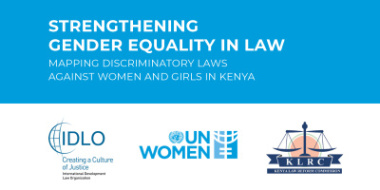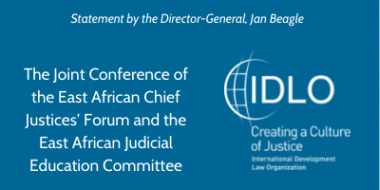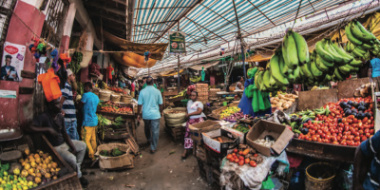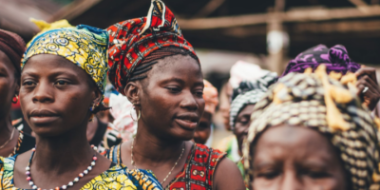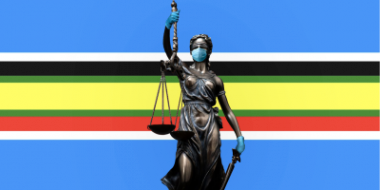
There is an urgent need to achieve meaningful equality and gender parity in leadership positions within Kenya’s justice sector, according to a new report.
IDLO, in partnership with the National Gender and Equality Commission and the International Association of Women Judges – Kenya, has released Women’s Professional Participation in Kenya’s Justice Sector: Barriers and Pathways.
The report examines the different actors that constitute the justice sector– the police, academia, law societies, lawyers, judges and magistrates – and the barriers that block women’s equitable and meaningful participation in them.
Kenya has been a pioneer in overcoming historic gender inequality, and its 2010 Constitution accelerated this progress with Article 27, which stipulates that no elective body can be populated with more than two thirds of one gender, and Article 10, which outlines Kenya’s commitment to equality, inclusiveness, and anti-discrimination.
While social norms and gender stereotypes effectively excluded women from pursuing careers in the justice field, leaps and bounds have been made since the 1990s, with women’s representation catapulting to almost parity in law schools. By 2018, women judges and magistrates also made up a remarkable 48% of the judiciary.
Progress notwithstanding, IDLO’s report illustrates that these gains do not necessarily speak to meaningful equality.
For example, no woman has ever has served as Chief Justice, President of the Supreme Court, or President of the Court of Appeal. What’s more, there is not a single woman in the Kadhis’ Courts – religious courts adjudicated by Kadhi magistrates that apply a hybrid legal approach with Sharia Law. This trend is particularly disconcerting considering the Kadhis’ Courts deal with issues that disproportionately affect women such as divorce, inheritance and family matters.
The report cites the lived experiences of many women legal professionals who have tried to break into higher circles of leadership. Respondents confirm that a number of barriers persist in the justice sector that prevent prevent women’s full participation as top-tier justice professionals. As one female judge summarized the problem:
“The judiciary has tried to increase women’s representation and participation at recruitment level, but there is a need to improve their numbers at the high levels of the institution. Let us give women a chance, they can also be Chief Justice and Attorney General or any position of leadership.”
While strong provisions, Articles 10 and 27 of the Constitution are not necessarily enforced with the vigor required to break the glass ceiling, compounded by unique obstacles that slow women’s professional advancement. These include gender stereotypes, lack of mentorship and support networks for women, and even sexual harassment.
“There is unequal pay in the law firms for female advocates. Many of my colleagues talk about unequal pay comparing themselves to their male counterparts, being given less important assignments (female lawyer’s competency being doubted, less are allowed to be partners), poor maternity cover or none at all and sexual harassment from their male employers,” reported another respondent.
IDLO’s previous research illustrates that women’s leadership in the justice sector can break down barriers for women justice seekers. Without strong policy intervention, the current report cautions that identified inequities will continue to persist and risk stalling Kenya’s overarching goals of gender equality.
Policy recommendations emerging from the research address recruitment, legislation, gender sensitive training, education, mentoring, and tackling sexual harassment and external factors that prevent women’s participation.
At the same time, as data show that women are close to nominal parity, the report emphasizes that the focus must turn to the internal dynamics within the field to realize meaningful equality for women justice professionals. It shines a spotlight on disparities within the legal sector, cutting through the notion that equality is about representation in numbers alone.
IDLO’s Gender Specialist in Kenya, Shiro Mogeni, comments: “The report is released at a time when the representation and participation of women in the justice sector is marred by limited substantive participation and low representation. Increased participation of and by women in judicial processes encourages the administration of gender justice – justice that addresses the impact of judicial outcomes on the lived realities of men and women, especially the vulnerable and marginalized.”
By illuminating the unique obstacles faced by women in Kenya’s justice sector and providing actionable policy recommendations, the report presents opportunities for positive, substantive change.
“The report proposes concrete steps that the justice sector can take in order to facilitate gender responsive service delivery,” Mogeni continues. “This will significantly contribute to bridging the gender gap through inclusive and reformed judicial culture and practices.”
Image: The Judiciary of Kenya
Women’s Professional Participation in Kenya’s Justice Sector: Barriers and Pathways is the fourth publication in IDLO’s Gender Pledge Series, following a global report and two country-specific studies conducting similar research in Afghanistan and Tunisia. IDLO recognizes the importance of a diverse and inclusive justice sector where women are equally represented in all roles and at all levels, empowered to fully participate in decision-making processes, and able to access their rights without fear of systemic discrimination.


